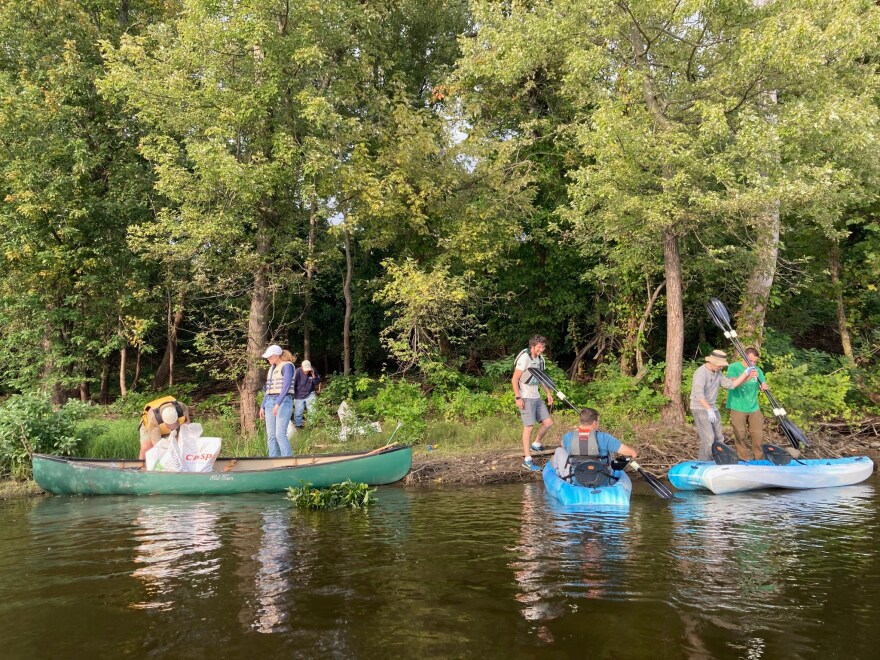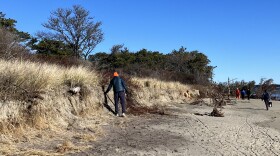Volunteer trash cleanups are one way environmentalists in Connecticut clean up the state’s waterways, but recent weekends filled with rain have led to a lot of canceled cleanups.
Everything from discarded plastic bottles to cigarette butts, unused tires and old air conditioners are the focus of cleanups by environmental groups like Save the Sound. It’s a lot of garbage. Over dozens of cleanups during the summer, the group says it usually finds thousands of old items, many containing hard-to-break down plastic, which degrades waterways and harms wildlife.
But this year, only about half the usual events have happened so far, says Andreina Barajas Novoa, The Connecticut Cleanup intern, who helps coordinate the efforts for Save the Sound.
“We should have at least had … the majority of our cleanups by now,” Barajas Novoa said. “Maybe at least 50 that should have already occurred, but they haven't, because some of them have been canceled.”
And when cleanups are canceled, she said, it can be tough to recruit as many volunteers for the rescheduled events that will now go into November.
That means a lot of that trash that, normally, would get picked up, is still out there. And as Connecticut comes off its third wettest September on record, localized flooding is moving that garbage around.

“This year in particular was a really important year to go out, just because there was so much litter and debris that got washed up in different places,” said Rhea Drozdenko, with the Connecticut River Conservancy.
Drozdenko, the state’s river steward, said the September cleanup they planned for the whole Connecticut River watershed had to be canceled in multiple Connecticut locations because of the summer’s flooding and heavy rains.
The ripple effects of these cancellations could also have policy implications, Drozdenko said.
Data gathered by both Save the Sound and Drozdenko’s organization on the type of litter they find in waterways helps to quantify the state’s trash problem to lawmakers, she said.
Drozdenko said her group is also pushing for legislative actions to stop litter from reaching the streets – from stronger bottle bills to incentivize recycling, to more regulations around styrofoam.
“So not just cleaning up one day, but how can you go beyond that?” she said. “How can you encourage other folks in your community to recycle? How can you reach out to your legislators and let them know about these issues? We really want to make sure folks stay engaged all year round.”

But even with a summer filled with bad weather and canceled cleanups, people across the state are still showing up to make a difference by cleaning up their community, Save the Sound’s Andreina Barajas Novoa said.
“I think the collaborative effort that's being built is very meaningful,” she said. “And even though the weather hasn't been promising, I think there's still some positives to it.”





